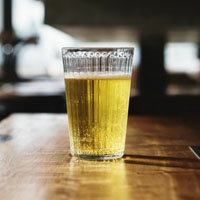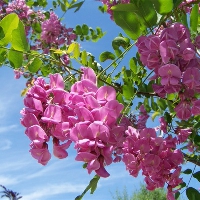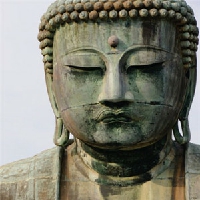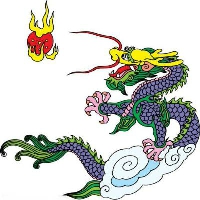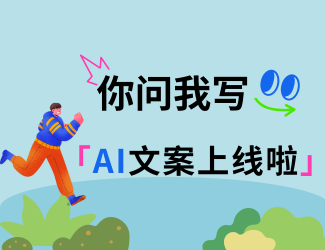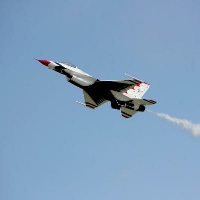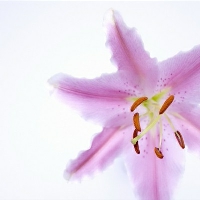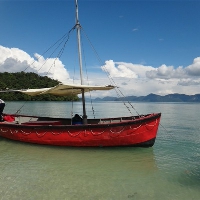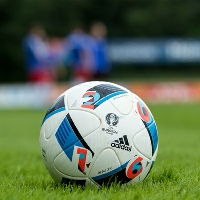Topic content:
Read the following classical Chinese and complete the topic.
Peng Yue is a native of Changyi, with the word Zhong. A great fisherman in the wild is a group of thieves. At the beginning of Chen Sheng and Xiang Liang, the youth may be called Yue Yue, who said, "All the heroes and Jie stand side by side with Qin. Since Zhong Ke, they have also taken effect." Peng Yue said, "Let's wait for the two dragons fighting each other."
When he was more than years old, Ze Xian's youth gathered more than 100 people and went to Pengyue, saying, "Please Zhong be the leader." The more he thanked, "I don't want to be with you." The young man forced him to accept. The meeting will be held every day, and the later will be beheaded. The sun rises in a single day, after more than ten people, the latter is in the middle of the day. So he thanked him more and said, "My dear minister, you think it's a long time. You can't kill all the people who come after this issue. You can't kill the last one." He ordered the headmaster to kill him. They all laughed and said, "Why? Please don't dare." So the more one person was killed, the more he set up an altar offering, the more he made his disciples. All the disciples were shocked, afraid of crossing, and dared not look up. But in a strategic way, we collected more than a thousand people from princes and scattered soldiers.
Peigong attacked Changyi from the north of Dang, and Peng Yue helped him. In the spring of the second year of the King of the Han Dynasty, he attacked Chu with Bao, the King of Wei, and other princes. Peng Yue returned more than 30000 of his soldiers to the Han Dynasty. However, Peng Yue was the prime minister of Wei. He was good at commanding his troops to the Liang area.
After the defeat of the King of Han, Peng Cheng was defeated to the west, and Peng Yue was killed again. In the third year of the King of the Han Dynasty, Peng Yue often went to and fro as a soldier in the Han Dynasty, attacking Chu, and cutting off the grain for the later generations. In the winter of the fourth year of the Han Dynasty, King Xiang and King Han were separated from Xingyang, and Peng Yue captured Suiyang and Waihuang 17 cities. When King Xiang heard of it, he made Cao Jiu guard Chenggao, and from the east, he collected the cities under Peng Yue, all of which were restored to Chu. The more he marched his troops northward, the more he went to the valley. In the autumn of the fifth year of the Han Dynasty, the south of King Xiang went to Yangxia, and Peng Yuefu went down to more than 20 cities near Changyi to get more than 100000 dendrobium in the valley to feed the King of the Han Dynasty.
(Five years) Xiang Ji is dead. In the spring, Peng Yue was appointed the King of Liang Dynasty, and both of them fixed pottery.
In the autumn of the tenth year, Chen Siege rebelled against the land, and the Emperor Gao attacked from there and went to Handan to recruit Liang Wang. The king of Liang said he was ill and sent his generals to Handan. Emperor Gao's anger made people let King Liang. The king of Liang was afraid and wanted to thank himself. His general Hu Er said, "At the beginning, the king refused to go. When he saw that he would give way, he would become a bird. It would be better to send troops against him." The king of Liang refused to listen and called himself ill. The king of Liang was angry with his servant and wanted to kill him. The eunuch died and left the Han Dynasty, and accused the Liang King of conspiring with Hu Er. So the envoy covered the king of Liang, and the king of Liang did not realize it. He captured the king of Liang and imprisoned him in Luoyang. There are some rules and regulations in place, so please follow the law. Forgive the people who thought they were ordinary people, and pass it on to the blue clothes of Shu. To Zheng in the west, when Empress Lv came from Chang'an, he wanted to go to Luoyang and saw King Peng. King Peng wept for Empress Lv and said he was innocent. He was willing to deal with the old Changyi. Empress Lv promised to go east to Luoyang. Empress Lv Bai went up and said, "King Peng, a brave man, who has moved to Shu today, would be better off killing him because of his legacy." So Empress Lv ordered his martyrs to sue Peng Yuefu for rebellion. Ting Wei Wang Tian invites the people to come. Shangnaike, so the Yi and Yue clans were eliminated.
The imperial court official said: Wei Bao and Peng Yue, though they were so humble, have swept thousands of miles. They are lonely in the south. They have heard of their bloodletting. It is no different to be wise and resourceful, but only to suffer from the death of prisoners with the intention of rebellion and defeat. If you can catch a inch, the clouds will change rapidly. If you want to know how to deal with them, you will be imprisoned in seclusion without saying goodbye to the clouds.
From Historical Records, Biographies of Wei Bao and Peng Yue (with deletion)
Subtopic 1: The incorrect solution of the following underlined words is (3 points)
A. Chang Yu Ju Yeze Zhongyu: Fishing
B. Date of meeting and date of meeting: agreed
C. Gao Di's anger made people let Liang Wang let him blame
D. So the envoy made the king cover the beam: Subtitle 2: In the following groups of sentences, the underlined words have the same meaning and usage (3 points)
A. Chen Sheng and Xiang Liang met Empress Lv from Chang'an to Luoyang
B. Peng Yue returned more than 30000 of his soldiers to the Han Dynasty, and the Yellow River gave up the grain for the Liang Dynasty
C. So the more he led a man to kill Xiang Wang, the more he heard about it, the more he made Cao Jiu guard Chenggao
D. The following six sentences are divided into four groups. The group that can directly express Peng Yue's insight and talent is (3 points)
① Two dragons fight with each other. Let's wait.
② Going from Peng Yue, he said, "Please Zhong be the leader."
③ The more one person is invited to kill him, the more altar sacrifice is set up, which is to make him belong.
④ Peng Yue captured 17 cities of Suiyang and Waihuang.
⑤ At first, the king refused to go, but when he saw that he would go, he would become a bird.
⑥ King Peng, a brave man, moved to Shu today, which is a legacy.
A.①③④
B.③⑤⑥
C.①②⑤
D. ② ④ ⑥ Subtitle 4: The following appreciation of the original text is incorrect (3 points)
A. Peng Yue was born into a bandit, but he was very rich in military talent. This can be seen from his reaction when the "teenager" persuaded him to start an accident and the practice of "taking the last one as an example".
B. In the spring of the second year of the King of Han Dynasty, Peng Yue was appointed as the minister of the State of Wei, and asked him to monopolize the military power, pacify the Liangdi, and cut off the support of the Chu army in the Liangdi by coming and going to attack the Chu army. In the autumn of the fifth year of the Han Dynasty, Peng Yue also seized more than 100000 grains.
C. Peng Yue captured the city and occupied the land, made war achievements repeatedly, and lived a magnificent life. He was convicted only because the Han King did not go there in person. And because Empress Lv said "kill them" and set a trap for them; Ting Wei Wang Tian opened fire and poured oil on it, saying "the family", and suffered the fate of his clan.
D. Sima Qian believed that Peng Yue, who was born in a poor family but was able to travel thousands of miles and become king in the south, if he was not punished, he would be able to develop his ambition and make the situation change if he had the chance. Subtitle 5: Sentence breaking and translation. (10 points)
(1) Use "/" to break the sentences underlined in the text. (3 points)
What a hell is it to be punished for being captured because of the intention of being rebellious and not being defeated? The king is no different because he is so resourceful and has no body and ears
(2) Translate the underlined sentences into modern Chinese. (7 points)
① Your officials are strong and think they are good. After this issue, we should not take the last one as our punishment. (3 points)
② Empress Lv went up and said, "King Peng, a brave man, is now a disciple of Shu. It's better to punish him for this self inflicted trouble." So Empress Lv ordered his martyrs to sue Peng Yuefu for rebellion. (4 points)
Best answer:
Subtopic 1: D
Subtitle 2: A
Subtitle 3: A
Subtitle 4: B
Subtitle 5: (1) Embrace the idea of rebellion/defeat/be captured without death/be killed/Where is the man who has been trained and is ashamed of his behavior/King Kuang or no one
Different reasons/unique wisdom/no body and ears alone. (1 point will be deducted for 3 mistakes)
(2) ① I am old, and you insist that I be the leader. Now, many people are late at the appointed time
Kill the head, only the last one.
② Empress Lv stated to the emperor: "King Peng is a heroic and brave man. Now he is exiled to Shu, which is for himself
It's better to kill him than to leave disaster behind. " Therefore, Empress Lv asked Peng Yue's disciples to falsely accuse him of plotting against her again.
Answer analysis:
Subtitle 1: D (cover: attack)
Comment: For the understanding of notional words, we should pay attention to the relevant content of the original text, and we can use the substitution method to solve this notional word problem when we straighten out the general idea of the article. Every time you encounter a notional word with a dot, you will substitute the meaning of the notional word in the option to see if it is smooth. In this way, after reading the article, the notional word problem will be solved.
Subtitle 2: Analysis of test questions: A (A, B, their/those C, then, D, but/if)
Comment: This type of question is the most common one in the function word test. It is relatively simple, as long as you can understand each sentence and distinguish the meaning and usage of these common function words.
Subtopic 3: Analysis of test questions: A (② ⑥ is indirect performance, ⑤ is what others say)
Comment: To do this, you should first understand the meaning of "insight and talent", and then be able to clarify what is said in each clause. This type of question usually sets up some blinders. Some of them are Peng Yue's behaviors, but they can't reflect his "insight and talent". Some may reflect his "insight and talent", but they are other people's behaviors. So you must be careful when doing such questions.
Subtopic 4: Analysis of test questions: B
Comment: This type of question is an examination of the overall reading ability of classical Chinese, which covers a wide range of topics. It requires examinees to grasp the overall meaning of the text, and is a high-level requirement for the reading ability of classical Chinese. The options given in the question are characterized by subtle differences, specious, and may cause errors if you are not careful. The key to doing this is to strictly compare the original text and carefully identify the right and wrong.
Subtitle 5: Analysis of test questions:
(1) With a rebellious mind, when we fail, we fail to become famous and are willing to be a prisoner of the rank, so that we are killed. Why? People of medium intelligence and above are ashamed of their behavior, not to mention those who are called Wang Dao Gu! (2) ① When translating this sentence, 1 point for "strong" and 1 point for "thought", and 1 point for "smooth sentence".
② The key words in this sentence are "Tu", "Zhi", "Qi" and "Fu", each of which has 1 point.
Comments: When translating sentences, attention should be paid to finding the correct scoring points. Fake words, flexible use of parts of speech, special sentence patterns, ancient and modern synonyms can easily be set as scoring points.
Reference translation of classical Chinese:
Peng Yue, a native of Changyi, was nicknamed Peng Zhong. He often fishes in Juye Lake and acts as a robber with a gang of people. Chen Sheng and Xiang Liang rose up, and some young people said to Peng Yue: "Many heroes are competing to set up flags and betray the Qin Dynasty. You can stand up, and we can follow their example." Peng Yue said: "Now the two dragons have just fought, so we'd better wait."
More than a year later, the young people in Zezhong gathered more than 100 people and went to follow Peng Yue, saying, "Please be our leader." Peng Yue refused to say, "I don't want to work with you." The young people insisted on asking and then agreed. Agree with them that the sun will come out tomorrow, and those who are late will be killed. When the sun came out the next day, more than ten people were late, and the last one didn't come until noon. At that time, Peng Yue said apologetically, "I'm old, and you insist that I be the leader. Now, many people are late at the appointed time, so we can't kill all but the last one." The headmaster was ordered to kill him. Everyone laughed and said, "Why do you have to be so late in the future?" So Peng Yue dragged the last one to kill him. Set up earth altars, offer sacrifices with human heads, and command the people who belong to them. Everyone was shocked and afraid of Peng Yue. No one dared look up at him. So he led everyone to set out to seize the land and collect more than one thousand soldiers who fled from the vassals.
Peigong attacked Changyi from Dangbei, and Peng Yue helped him. In the spring of the second year of the king of Han, the king of Han, the king of Wei, the leopard and various princes attacked the Chu State eastward. Peng Yue led his army of more than 30000 people to attach themselves to the king of Han at Waihuang. He appointed Peng Yue as the prime minister of the State of Wei, monopolizing the military power and pacifying Liangdi.
The King of Han was defeated in Pengcheng and retreated westward. Peng Yue abandoned all the cities he captured and led his army northward along the Yellow River. In the third year of the King of Han Dynasty, Peng Yue often came and went to fight for the King of Han, attacked the Chu army, and cut off their support in the Liangdi. In the winter of the fourth year of the Han Dynasty, King Xiang and King Han held a stalemate in Xingyang, and Peng Yue captured 17 cities including Suiyang and Waihuang. When King Xiang heard the news, he sent Cao Jiu to garrison the city and recaptured the cities captured by Peng Yue to the east, and all of them were returned to the State of Chu. Peng Yue led his team north to Gucheng. In the autumn of the fifth year of the Han Dynasty, King Xiang's army retreated southward to Xiayang, and Peng Yue captured more than 20 cities near Changyi and captured more than 100000 grains, which were used as rations for the King of the Han Dynasty. Xiang Ji is dead.
In the spring of that year, Peng Yue was granted the title of Liang King, and the capital was established.
In the autumn of the 10th year of the Han Dynasty, Chen Siege rebelled on behalf of the local government. Emperor Gao of the Han Dynasty led his troops to go to Handan to enlist the Liang Dynasty. The king of Liang said that he was ill and sent his generals to Handan with their troops. Gao Di was very angry and sent someone to blame Liang Wang. Liang Wang was afraid and planned to go to apologize in person. His general Hu Er said, "The king didn't go until he scolded him. If he went, he would be arrested. It's better to send troops to revolt." The Liang king didn't listen to his advice and still said he was ill. King Liang was very angry with his servant and planned to kill him. The eunuch hurriedly fled to Emperor Han Gao and accused King Liang and Hu Er of conspiring against him. So the emperor sent envoys to attack the king of Liang unexpectedly. The king of Liang did not know it, but arrested him and imprisoned him in Luoyang. After the trial of the officer in charge, he believed that he had the evidence of treason and asked the emperor to sentence him according to law. The emperor pardoned him, abandoned him as a civilian, and exiled him to Qingyi County in Sichuan. Go west to Zheng County, just in time for Empress Lv to come from Chang'an and plan to go to Luoyang. On the way, he met King Peng, who cried to Empress Lv, and personally argued that he was innocent, hoping to return to his hometown Changyi. Empress Lv promised to go east with him to Luoyang. Empress Lv stated to the emperor: "King Peng is a brave and heroic man. Now he is exiled to Shu, which is to leave disaster for himself. It is better to kill him." So Empress Lv asked Peng Yue's disciples to accuse him of plotting against him again. Ting Wei Wang Tiankai submitted a petition to kill Peng Yue's family, and the emperor approved it. So he killed Peng Yue, killed his family, and abolished the state.
The Grand Historian said that although Wei Bao and Peng Yue were born in poverty, they occupied a vast land of thousands of miles like a rolling mat. They were king in the south. They followed the enemy's blood and became famous day by day. With a rebellious mind, when we fail, we fail to become famous and are willing to be a prisoner of the rank, so that we are killed. Why? People of medium intelligence and above are ashamed of their behavior, not to mention those who are called Wang Dao Gu! There is no other reason why they endure humiliation and never die. Because their wisdom and strategy are superior to others, they are only afraid that they cannot save their own lives. As long as they can control a little power and their political situation changes, they can perform their actions, so they are imprisoned instead of escaping.
Test core:
Reading of classical Chinese: "Classical Chinese refers to the written language of ancient Chinese formed on the basis of the spoken language of the pre-qin period and the language in the works of the writers of the past dynasties who imitated ancient Chinese". Classical Chinese, that is, articles written in classical Chinese, that is, ancient classical Chinese works and works imitating it in previous dynasties. As a stereotyped written language, classical Chinese has been used for two or three thousand years, ranging from pre Qin scholars, Han Dynasty poetry, historical prose, to Tang and Song ancient prose, Ming and Qing stereotyped writing. In other words, classical Chinese is the written language of ancient China and the source of modern Chinese. Classical Chinese has a large proportion in middle school textbooks. To learn classical Chinese well, first of all, understand the words in the language environment, constantly accumulate, skillfully grasp the application of classical Chinese sentence patterns, accurately translate the text and deepen the understanding of the text on the basis of familiar reading and recitation, and consciously improve their literary appreciation and evaluation ability.


